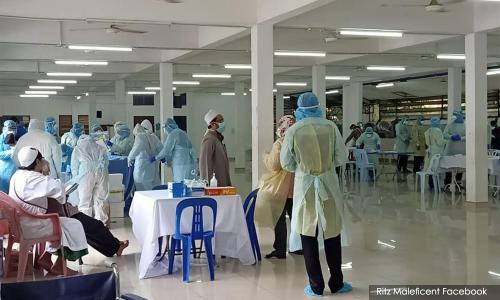LETTER | We are all on the bumpy ride together to stop the virus
LETTER | Much that is adverse has been written about Malaysia’s handling of the Covid-19 pandemic. But no amount of handwringing or blame-mongering will materially change the trajectory of the virus’s spread.
Fortunately, the recent focus of the ongoing debate - lessening the burden on our healthcare community - is a constructive development. I humbly suggest, however, that the authorities’ response needs to take a broader, and more consistent stance.
Supported by recommendations put forth by the medical community, Malaysia has recently adopted the strategy of self-isolation - staying at home - for asymptomatic or mildly symptomatic individuals. This goes a long way towards better triaging hospital capacity and supporting our healthcare workers.
Beyond just grappling with the lack of hospital capacity, essential diagnoses, interventions, and routine care for other illnesses have been casualties in this pandemic as medical resources have been re-directed to fighting Covid-19.
I believe there are some loose ends, however, in the policy as it stands.
We need a clear policy statement in support of individuals who test positive, do not require hospitalisation, but are unable to self-isolate in a private residence (due to space constraints, or out of concern for high-risk household members). This group should be given the option of staying at quarantine centres.
Furthermore, given that individuals who test positive for Covid-19 can now self-isolate at home, it is inconsistent to continue to require overseas returnees who test negative to isolate in quarantine centres, which include designated hotels.
The quarantine policy for overseas returnees was implemented at a time when Malaysia had nominal community transmission cases. When the nation is facing a critical shortage of quarantine space due to skyrocketing community transmission cases, it would be unrealistic not to make use of an effective hotel quarantine infrastructure to house Category 1 and 2 positive cases.
We should redeploy the considerable resources and government subsidies, currently allocated to housing overseas returnees in quarantine centres, to house those in the community who test positive. There are, of course, several highly accurate pre-departure tests or point-of-arrival tests that must be utilised to identify positive cases amongst overseas returnees.
Requiring overseas returnees who test negative to instead self-isolate at home will immediately alleviate the shortage of quarantine space.
The effectiveness of any home quarantine SOPs, however, is predicated on the observance and civic-mindedness of those required to self-isolate. To enhance compliance with home quarantine SOPs, the authorities should explore stiffer fines for people who do not abide by the rules. Tracking capabilities on smartphones, using electronic monitors, or random video calls or spot checks are a few optional measures in the enforcement arsenal that should be considered to further bolster compliance.
In the meantime, we can all do our part by continuing to adhere to SOPs that have been proven to reduce the spread of the virus: wearing masks, hand-washing, reducing gatherings, and physical distancing. We might also take a cue from countries that had contained the spread without crippling lockdowns, and which instead relied on other measures that have proven effective: increased, frequent, and affordable rapid testing, coupled with an efficient and real-time contact-tracing programme.
While the spectrum of opinions on effective pandemic management is as divergent and as divisive as it comes, we can all agree on one point: we are on this bumpy ride together. Even with the advent of vaccinations, the virus is destined to be with us for some time. Given that we must co-exist with the virus for the foreseeable future, let us create a pragmatic but agile framework that incorporates sensible and operationally supportable measures designed to discourage the spread of the virus.
The views expressed here are those of the author/contributor and do not necessarily represent the views of Malaysiakini.
RM12.50 / month
- Unlimited access to award-winning journalism
- Comment and share your opinions on all our articles
- Gift interesting stories to your friends
- Tax deductable
